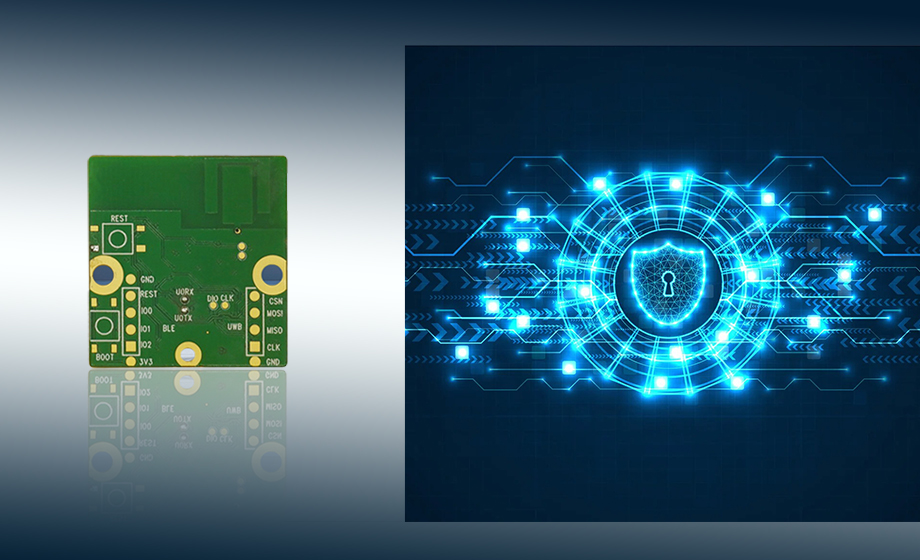I. Introduction
With the development and application of information technology, people pay more and more attention to the security of data transmission. In many data transmission methods, UWB transmission chip is gradually becoming the focus of research because of its unique advantages, especially for the outstanding performance in security. This paper will discuss in detail the performance of uwb ultra-wideband transmission chip in data transmission security and its future development potential.

Second, the advantages of UWB ultra-wideband transmission chip
High speed and low power consumption
UWB ultra-wideband transmission chip has the advantages of high speed and low power consumption. This makes it excellent in many application scenarios, such as wireless communication between Internet of Things (IoT) devices, and data transfer in areas where there is no power supply.
Strong security
UWB ultra-wideband transmission chip has attracted much attention for its excellent security. Its data transmission process is difficult for eavesdroppers to break, thanks to its high encryption and complex processing of signals. Therefore, UWB technology is well suited for applications that require a high degree of security, such as financial transactions, government communications, and military use.
Third, the performance of UWB ultra-wideband transmission chip in uwb data transmission security
The use of encryption algorithms
UWB ultra-wideband transmission chip uses advanced encryption algorithms in the data transmission process, such as AES-128 or AES-256, and the strong encryption performance of these algorithms can effectively prevent data from being cracked and tampered with.
Physical layer security
In addition to using encryption algorithms at the data link layer, UWB ultra-wideband transmission chips also provide unique security at the physical layer. Because the bandwidth of UWB signals is very wide, it is possible to send encrypted checksums or other secure information using part of the bandwidth while sending data. This method greatly improves the security of uwb data transmission.
Prevents signal interception and tampering
The UWB ultra-wideband transmission chip also has the ability to prevent signal interception and tampering. This is because it uses short pulses and high-speed frequency-hopping technology, making any attempt to intercept or tamper with the signal very difficult.
Fourth, the future development potential of UWB ultra-wideband transmission chips
Ideal for secure iot communication
With the rapid development of the Internet of Things, the need for secure communication is also increasing. With its excellent security and high efficiency, UWB ultra-wideband transmission chips will become the ideal choice for secure communication in the Internet of Things. For example, it can be used to secure communications in areas such as smart homes, smart cities, and industrial automation.
Key roles in 5G and 6G communication technologies
UWB ultra-wideband transmission chips also play a key role in 5G and 6G communication technologies. It can not only be used to realize close-range high-speed data transmission between devices, but also to build a secure data link to prevent malicious attacks and data tampering.
New hope for personal privacy protection
With the increasing of personal data, the protection of personal privacy is becoming more and more important. UWB ultra-wideband transmission chip can provide a highly secure transmission method for personal data, so that personal privacy can be effectively protected. For example, it can be used to protect sensitive information during online transactions, authentication, and more.
V. Conclusion
UWB ultra-wideband transmission chip is becoming a research hotspot in the field of data transmission because of its excellent security, high speed and low power consumption. With the continuous development of technology and the continuous expansion of application scenarios, we have reason to believe that UWB ultra-wideband transmission chips will play an increasingly important role in the future of data transmission security.



